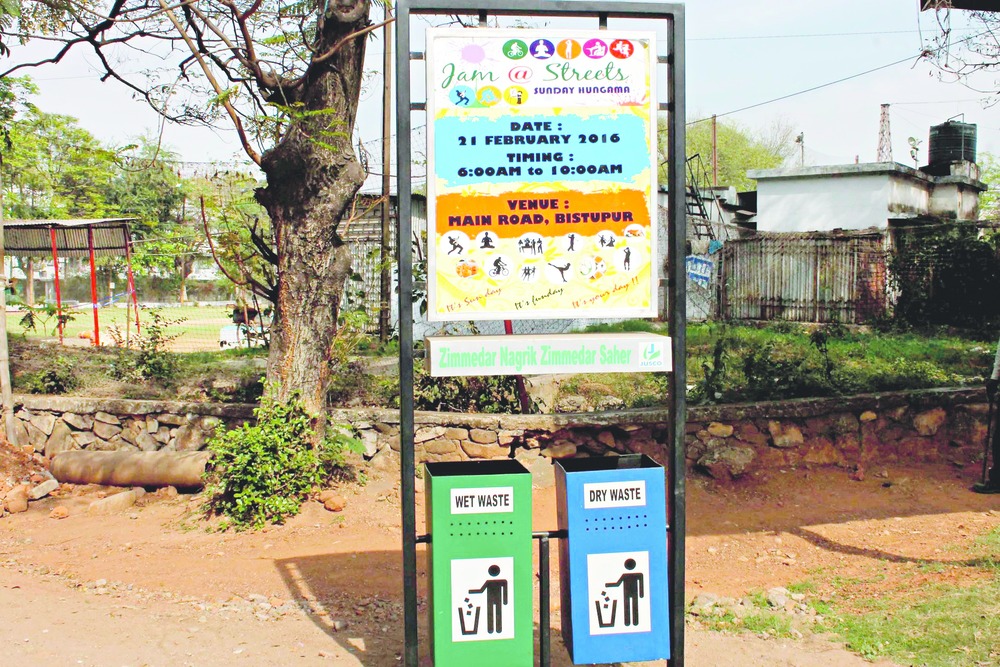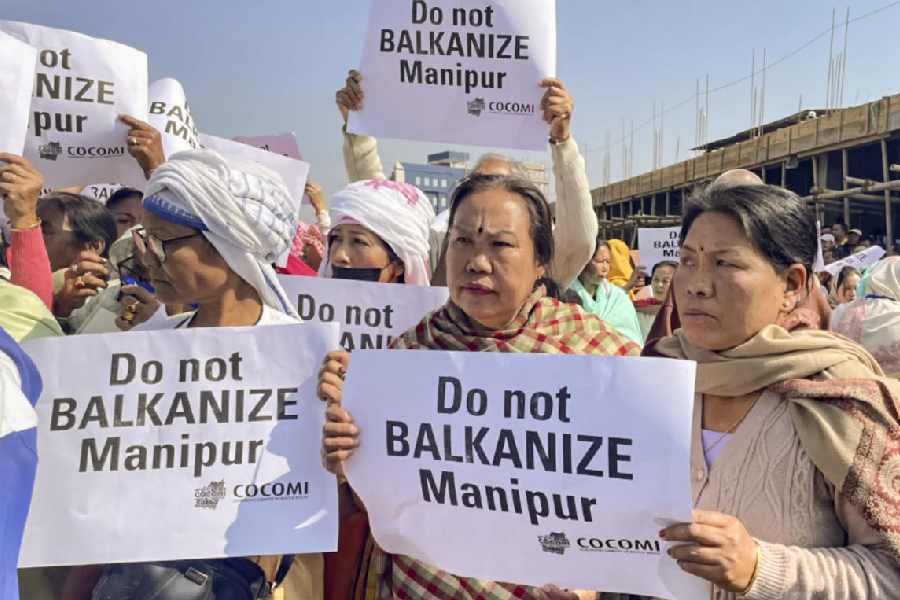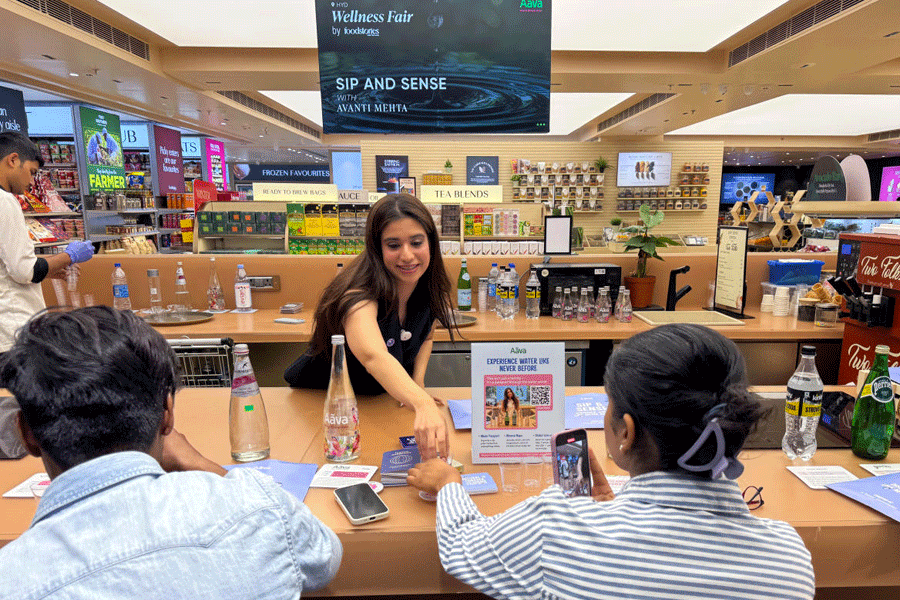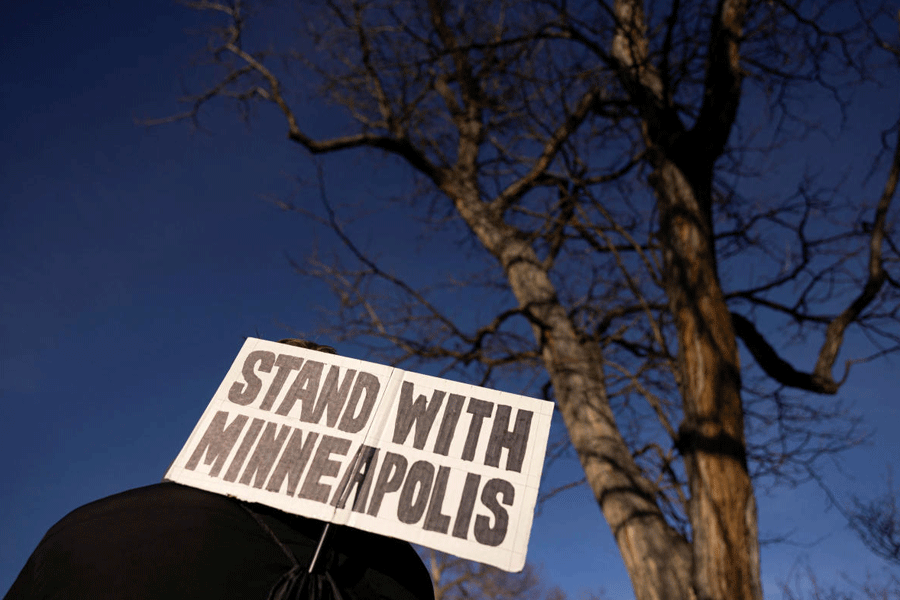
Should a fused bulb and leftover food be thrown in the same bin? Ideally no.
Separating dry and wet filth is a buzzword of waste management experts around the world because each kind of trash needs to be disposed of in different ways. And now, Jamshedpur has caught on, taking cue from Mysore, which topped 73 cities in the recent national cleanliness survey, by segregating dry and wet filth on important streets.
Jusco, which looks after the civic needs of Jamshedpur areas under Tata lease, has put up two pairs of bins - blue for dry wastes and green for wet - at Circuit House Area-Jubilee Park Road (near Jamshedpur School of Cricket grounds) and near Voltas Roundabout (on Bistupur-Jugsalai Main Road) last week.
Paper, cardboard, glass, thermocol, all forms of plastic, wood, leather, rubber and scrap metal come under the dry category.
Organic wastes comprising leftover food, rotting fruit and vegetables, tea bags, eggshells, shells of all kinds of nuts, garden clippings, among others, fall in the wet category.
"We used colour codes on the bins so that the two categories of trash are not mixed up," Jusco spokesperson Rajesh Rajan said, adding that they took the cue from Mysore's waste segregation policy that had started in India's cleanest city in 2014.
On why it was important, he explained: "Segregation of dry and wet waste is mandatory under environment norms. Wet wastes should be treated in compost or vermicompost plants. Dry wastes should be disposed in landfill sites. If organic wastes are disposed in landfills, harmful gases will be generated. And, obviously, you can't treat dry wastes in compost plants."
According to Jusco data, daily waste generated in Tata lease areas is 300MT, 45 per cent of which is wet.
Jusco has a landfill site near Bara in Sidhgora while the compost treatment plant is near Marine Drive and the vermi-compost treatment plant is at Ramdas Bhatta.
Now, the challenge is to educate people to dispose wastes properly according to their category, Rajan added.
"We held talks with market association officials of Bistupur and Sakchi to educate their members (read traders) about the environment aspect of segregating wastes and encourage customers and traders to drop wet and dry waste in separate bins," he said.
Giving an easy instance, he asked people to throw an used paper or thermocol cup in the blue vat and a sal-leaf container for, say, golgappas in the green one.
"We will also host counselling sessions at schools and involve students as ambassadors at home so that society as a whole starts segregating wastes," added Rajan.
In the next phase, Jusco also plans to install more than 180 such improvised street bins to segregate wastes at key commercial hubs in Bistupur, Sakchi, Sonari, Kadma, Golmuri, Burmamines, Telco, Sidhgora and Baridih.
"We will install colour-coded vats on Sakchi Boulevard, Inner Circle Road, Bistupur Main Road, Straight Mile Road, Office Road, Circuit House Road, Golmuri Main Road and Nildih Road and similar important roads that pass through commercial hubs, generating huge dry and wet wastes," Rajan added.
Will you start separating dry and wet wastes at home? Tell ttkhand@abpmail.com











